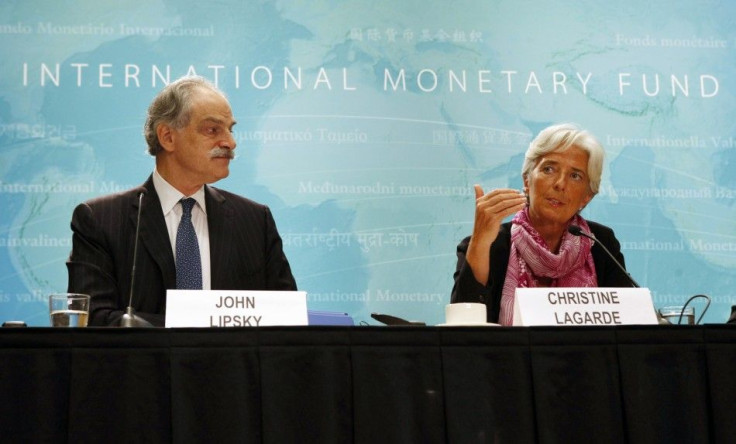IMF Calls on U.S. to Raise Debt Ceiling

Analysis
The International Monetary Fund has called upon the United States to raise its debt ceiling. The IMF made the appeal as part of a review of U.S. economic prospects.
"Directors highlighted the urgency of raising the federal debt ceiling and agreeing on the specifics of a comprehensive medium-term consolidation plan. With a well-defined, credible multi-year framework in place, the pace of deficit reduction in the short run could be more attuned to cyclical conditions" the IMF said, in its review of the U.S. economy.
In that review, the IMFalso concluded that a slow-paced U.S. recovery can continue with some fiscal tightening, but also noted that public debt was a concern.
The Democratic and Republican parties are currently at an impasse regarding the debt talks, and no new negotiations have been scheduled.
However, two plans, one from each political camp are winding their way through Congress, and it's not unreasonable that a modified version of each could be voted on soon.
So far, U.S. and global financial markets have remained calm and patient: the impasse has not been a factor in the bond market, and the dollar remained slightly higher versus the euro at $1.4373 on Monday at mid-day.
One strategy, backed by House Speaker John Boehner, R-Ohio, would involve $1.2 trillion in spending cuts in exchange for an equal rise in the debt ceiling.
Under that plan, Congress would also create a 12-member committee staffed with lawmakers from both the House and Senate and tasked with identifying at least $1.6 trillion in additional savings by a deadline set for later this year, The Washington Post reported Monday. Those savings would be paired with a second debt-limit increase, meeting Boehner's dollar-for-dollar condition.
A second plan, one spearhead by Senate Majority Leader Harry Reid, D-Nev., would ask Congress to make about $2.7 trillion up-front budget cuts, raise the debt ceiling by $2.4 trillion, but would leave Medicare and Medicaid untouched, Bloomberg News reported Monday.
Congress has until August 2 to raise the debt ceiling. The U.S. Government's borrowing authority ends on August 2. A failure by Democrats and Republicans to reach a deal on the debt ceiling could result in an event most economists for decades thought was unfathomable -- a default by the largest and most technologically advanced economy in the world.
On August 4, the U.S. Treasury Department is due to pay off $30 billion in maturing short-term debt. In theory, the United States could prioritize debt payments, but U.S. Treasury Secretary Timothy Geithner warned lawmakers in Congress Wednesday that the prioritization tactic would still cause investors to shun U.S. Treasury securities, commonly known as Treasuries.
Geithner has also repeatedly underscored that failing to raise the debt ceiling will have no constructive outcomes for the nation's fiscal condition, the task of deficit reduction, and U.S. and global stock and bond markets.
Fiscal/Economic Analysis: The IMF's evaluation is consistent with the building concern in economic and financial circles that Congress may not raise the debt ceiling in time, and it serves as one more 'nudge' to get the leaders of the U.S.'s two, major, political parties to compromise, find common ground, and raise the debt ceiling with a substantive deficit reduction package. As the IMF noted, the global economy would be hurt by a sudden, large rise in interest rates that a U.S. default would trigger.
© Copyright IBTimes 2025. All rights reserved.





















